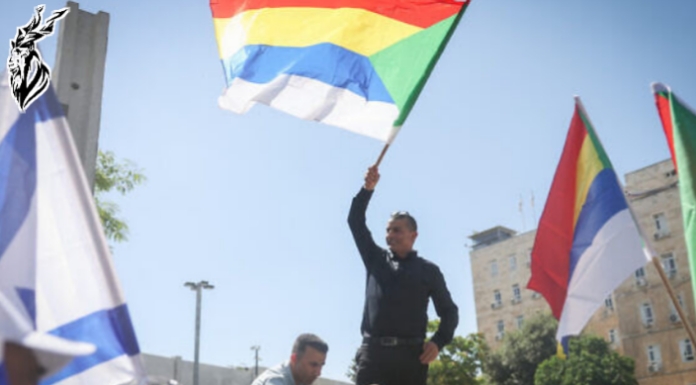Druze Community in Golan Heights, were recently attacked by a missile. Though neither Israel, Hezbollah or another group or state has claimed responsibility for it. But who actually are the Druze, this article explains.
Druze community, a small yet distinctive religious and ethnic minority, has long captured the curiosity of many due to its unique cultural and spiritual heritage. Predominantly residing in the mountainous regions of Lebanon, Syria, and Israel, the ”ruze are known for their tight-knit communities and secretive religious practices. Despite their relatively small population, their influence and role in the Middle East have been significant, particularly in Syria and Israel.
Origin And Beliefs
Druze faith originated in the early 11th century in Egypt as an offshoot of Ismaili Islam, with significant influences from Gnosticism, Neoplatonism, and other philosophies. Named after one of its early leaders, al-Darazi, the community prefers the term “Muwahhidun” (Unitarians) to emphasize their belief in the unity of God. Their religious texts, known as “Epistles of Wisdom,” are kept secret and are accessible only to a select group of religious leaders known as “uqqal” (the knowledgeable ones).
Cultural And Social Identity
The Druze community has a strong sense of identity and cohesion, preserving their unique customs, language, and traditions over centuries. Their social structure is highly organized, with community affairs often managed by a council of elders. Marriages within the community are encouraged to maintain cultural continuity, and conversion to or from the Druze faith is generally not permitted.
Druze In Syria
Druze are primarily concentrated in the Jabal al-Druze region, also known as the Druze Mountain or Jabal al-Arab. Historically, they have played a pivotal role in the country’s political landscape. During the French Mandate in the early 20th century, they fiercely resisted foreign control, and this spirit of independence has persisted.The o’going’Syrian Civil War has deeply affected the Druze community. While initially trying to remain neutral, many Druze have been drawn into the conflict, either aligning with the Assad regime for protection or joining local defense groups to protect their territories from extremist factions. Their primary concern has been to safeguard their communities and maintain their autonomy amid the chaos.
Druze In Israel, Occupied Golan Heights
Israel, the Druze community enjoys a unique position. Unlike other Arab citizens of Israel, Druze men serve in the Israel Defense Forces (IDF), a practice that began in 1956 through a mutual agreement with the Israeli government. This military service has fostered a sense of Israeli-Druze identity among many, though it also creates a complex dual identity as Druze in Israel balance their Arab heritage with their loyalty to the Israeli state.Israeli Druze primarily inhabit the Galilee region and the Golan Heights, the latter of which was annexed by Israel from Syria in 1981. This has left the Golan Druze in a particularly precarious position, as they often face a choice between maintaining their Syrian allegiance or integrating more fully into Israeli society. Many continue to identify as Syrian, refusing Israeli citizenship, while others have accepted it to gain full rights and benefits within Israel.
Challenges And Future Protests
The Druze community faces numerous challenges as they navigate their identities and allegiances. In Syria, the continuing conflict threatens their safety and way of life. In Israel, balancing integration with the preservation of their distinct cultural identity poses an ongoing dilemma.
Despite these challenges, the Druze community remains resilient. Their deep-rooted traditions, strong sense of unity, and adaptability have enabled them to survive and thrive for centuries. As they continue to navigate the complexities of modern geopolitics, the Druze will undoubtedly remain a fascinating and integral part of the Middle Eastern tapestry.
The Druze Community: Recent Tensions in the Golan Heights
The Druze community, a small yet distinctive religious and ethnic minority, has recently faced significant turmoil. Predominantly residing in Lebanon, Syria, and Israel, the ”ruze are known for their tight-knit communities and secretive religious practices. Their faith, which originated in the 11th century as an offshoot of Ismaili Islam, is characterized by its unique blend of religious beliefs, accessible only to a select group of leaders. In recent developments, the Druze in the Golan Heights were targeted in a violent strike. This region, annexed by Israel from Syria in 1981, is home to a significant population who often find themselves balancing a complex dual identity. While many Golan Druze maintain Syrian allegiance, some have accepted Israeli citizenship for full rights and benefits. The recent attack, however, has further strained these delicate loyalties.Although Hezbollah has denied responsibility for the strike, the incident has escalated tensions in the region. The attack has sparked widespread outrage among the community, leading to protests against Prime Minister Netanyahu and the Israeli government. Demonstrators voiced their demands for justice and protection, highlighting their frustration and fear amid the increasing instability.This attack is reportedly being used to manufacture consent for a potential invasion of Lebanon, raising concerns about the broader geopolitical implications. The possibility of such an invasion adds another layer of complexity to the already volatile situation, as it could further destabilize the region and impact the community in Lebanon as well.
Despite these challenges, they remain resilient. Their strong sense of unity and deep-rooted traditions have enabled them to navigate the complexities of modern geopolitics while preserving their cultural identity. As they face this latest crisis, the community continues to strive for autonomy and safety, maintaining their distinctive heritage amid ongoing regional conflicts.
Report By Khansa Ayub, Journalism Intern At The Pakistan Frontier.
